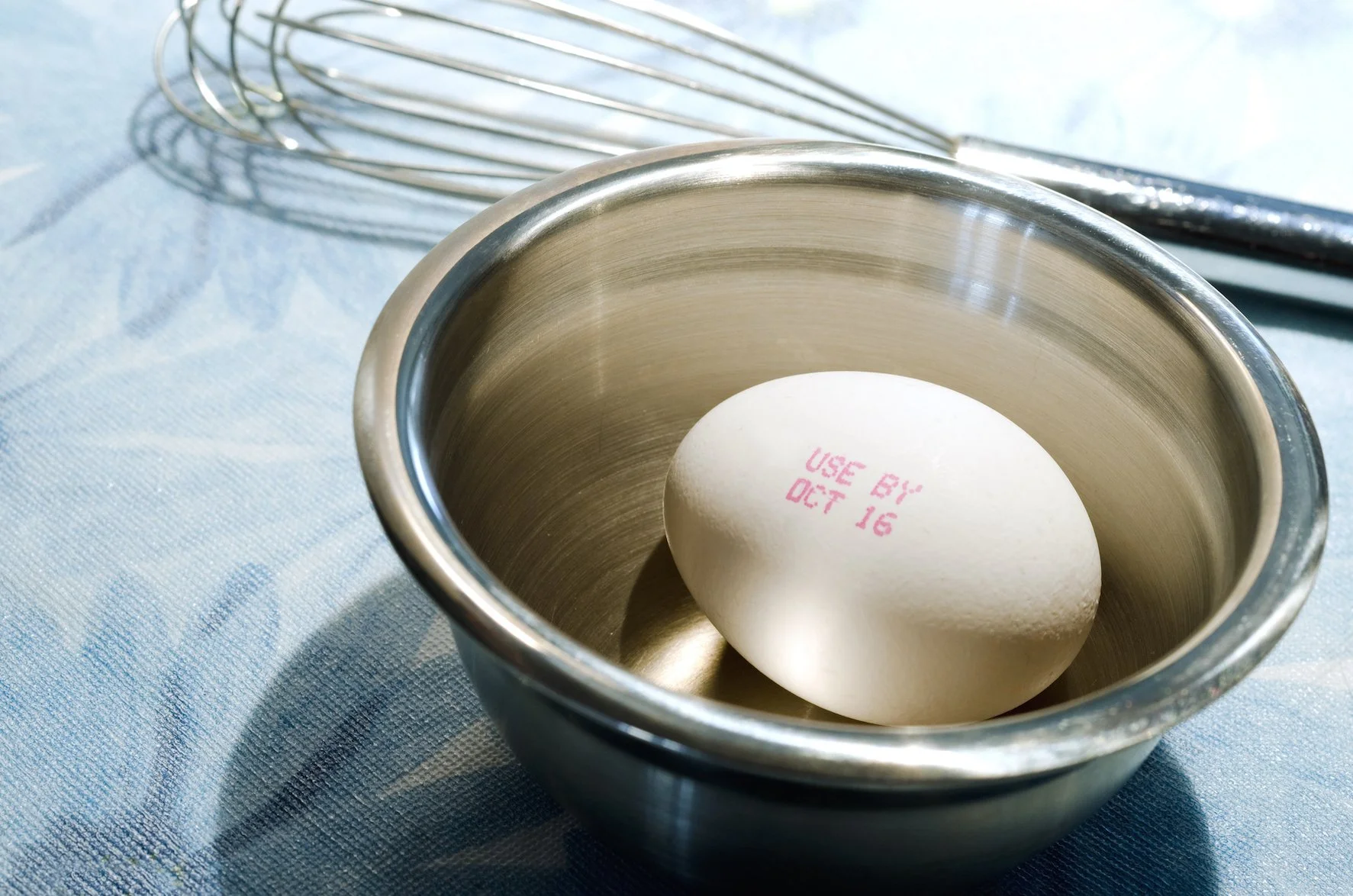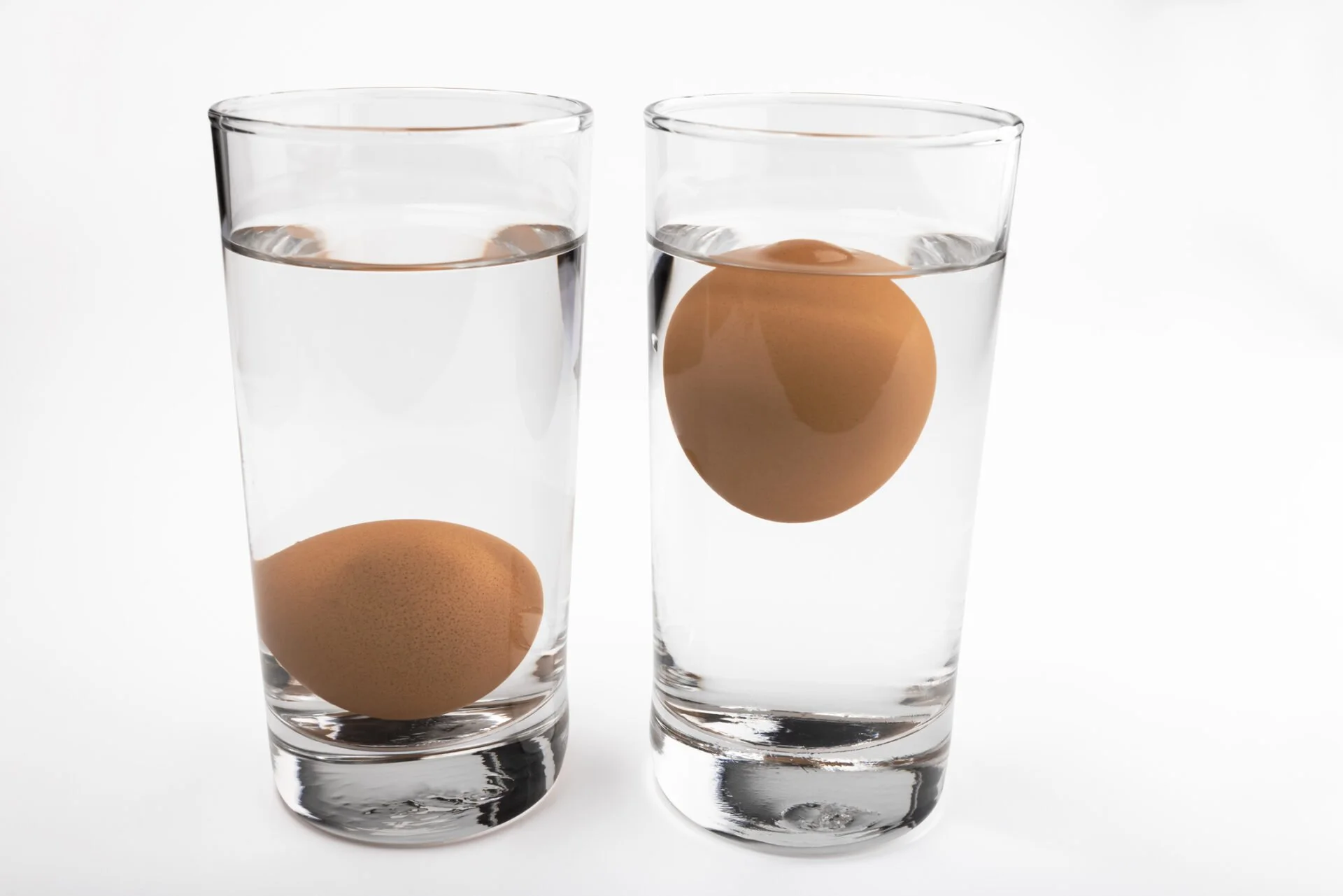Easy Ways to Tell if an Egg Has Gone Bad: Egg Safety Tips
Discover > Texas Home Cooking > Easy Ways to Tell if an Egg Has Gone Bad: Egg Safety Tips
Do you know how to tell if eggs are bad? In this blog post, TexasRealFood will discuss easy ways to tell if an egg has gone bad. Let's get started!
Eggs are a common pantry ingredient that can be used in so many recipes. Most people think of eggs as breakfast food. However, they are actually incredibly versatile and can be used in various dishes. In addition to being a delicious and convenient protein source, eggs are relatively inexpensive and have a long shelf life.
For these reasons, eggs are an excellent pantry staple. They can be used to make anything from a simple omelet to a fancy frittata and are also perfect for baking. You can hard-boil them for a quick and easy snack, scramble them up for breakfast, or add them to a cake batter. Eggs are always a good option whether you're looking for a quick snack or a hearty meal. So next time you're stocking up your pantry, don't forget to grab some eggs.
But how do you know if an egg has gone bad? Unfortunately, it's not always easy to tell. Sometimes, the eggs will smell funny, but other times they won't. This blog post will give you easy ways to tell if an egg has gone bad. Plus, we'll give you some tips on storing eggs and using them up before they spoil. So read on for all of that—and more!
How to Tell if Eggs are Bad?
1. Check the Dates.
Check the expiration date on the carton and make sure to use eggs before that date. Once eggs reach their expiration date, they are no longer safe to eat.
If you can't find the expiration date, or if it's not legible, there is another way to tell how old your eggs are. The USDA requires that all egg cartons be stamped with a Julian date—which is simply a code for the day of the year. The date will be a three-digit number, with January being 001 and December being 365. So, for example, if you see the code 048 on your eggs, they were packed on the 48th day of the year—or February 17.
You can use this method even if there is an expiration date on the carton, as the Julian date will tell you how long the eggs have been sitting in your fridge.
Shopping for eggs should be easy – but with all labels printed on egg cartons, it's no longer a simple task. "Crack" buying eggs with our TexasRealFood guide.
2. Inspect the Eggs.
Check the Shell
Inspect the egg - check that the shell is not cracked, slimy or powdery. While the egg is still in its shell, Sliminess or cracks can indicate the presence of bacteria, while a powdery appearance on the shell may indicate mold
Also, check the shells for any dirt or debris - if they're clean, they're most likely stored in reasonable condition before selling.
Check the Yolk Color
Bad eggs usually have a greenish-black ring around the yolk. Bacteria can also manifest in So if you see a greenish-black ring around the yolk, this is another sign that the egg has gone bad and should not be eaten.
These are a few ways to tell if an egg has gone bad. But, of course, if you're ever unsure, it's always better to err on the side of caution and discard the eggs.
3. Float Test
The float test is an excellent way to test eggs on the borderline of going bad.
Here's a little experiment you can do at home to test the freshness of an egg:
Get a clear glass and fill it about halfway with cold water.
Carefully place the egg in the water. It is fresh if the egg sinks to the bottom and lies on its side. If the egg stands on its end at the bottom of the glass, it is still good to eat but is starting to lose some of its freshness.
If the egg floats to the water's surface, it has gone bad and should not be eaten.
So next time you're unsure whether those eggs in your fridge are still good, give this little test a try.
4. Smell Test
If you're not sure whether an egg is still good, there's a simple test you can do at home. Here’s how :
Just crack the egg into a bowl and take a sniff. If the egg smells fresh, it's probably still good to eat. If it smells bad, it's best to throw it out.
This is because eggs can spoil quickly if they're not refrigerated properly. When in doubt, it's always better to err on the side of caution and toss the egg. After all, eggs are perishable foods and need to be treated as such.
5. Spin Test
The egg spin test is a classic method for determining whether an egg is fresh. Try it using these simple steps :
Simply take the egg and give it a spin. If the egg wobbles on its axis, it's fresh. If it spins smoothly, it's an old egg.
This is because as the egg ages, the contents of the egg shrink, and the air pocket inside the egg grows larger. This makes the egg more buoyant in water and makes it easier for it to spin on its axis. While this test is not foolproof, it's an excellent way to get a general sense of how fresh an egg is. So if you're ever in doubt, give it a spin.
The Dangers of Eating Raw Eggs
Every year, thousands of kids get sick from eating raw eggs. So while adults might not think twice about having a raw egg in their morning smoothie, the risk is not worth it for kids.
Raw eggs can be contaminated with bacteria like Salmonella, which can cause vomiting, diarrhea, and even fever. In severe cases, hospitalization might be necessary.
So what's the best way to protect your kids? Cook eggs until the yolks and whites are firm, and make sure to wash hands, utensils, and surfaces thoroughly after coming into contact with raw eggs. You can help keep your family safe from foodborne illness with some care.
If you're looking for tasty, sustainable poultry products, here are 6 Central Texas chicken farms selling pasture-raised eggs and chicken.
Egg Safety Tips for Handling and Storing Eggs
Most of us probably don't give much thought to the eggs we buy at the grocery store. We just grab them off the shelf and assume they're safe to eat. But eggs can be pretty fragile, and if they're not handled properly, they can harbor bacteria that can make you sick.
Eggs are a staple in many households but can go bad quickly if not handled and stored correctly. By following these simple tips, you can make sure that your eggs are always fresh and safe to eat.
When buying eggs, avoid cracked or dirty eggs. If an egg is cracked open, there is more risk for bacteria to contaminate the egg.
Eggs are usually good for 3-5 weeks after the sell-by date, but they can start to spoil sooner if they're not stored properly.
When you get home from the store, put your eggs in the refrigerator as soon as possible. Eggs should be stored in the coldest part of the fridge, ideally in the back of the bottom shelf.
While most shoppers can't tell the difference between the different market forms of eggs, hopefully, this article will help you crack it!
The Bottom Line
Bad eggs can happen to anyone - even the most experienced of cooks. But by following these simple tips, you can make sure that your eggs are always fresh and safe to eat.
Do you have any other tips for telling if an egg has gone bad? Let us know in the comments below! And don't forget to share this post with your friends and family to help them keep their eggs fresh, too.









